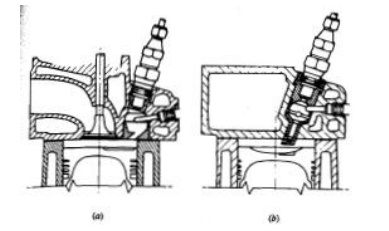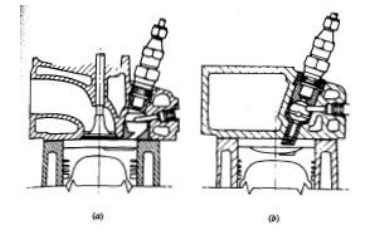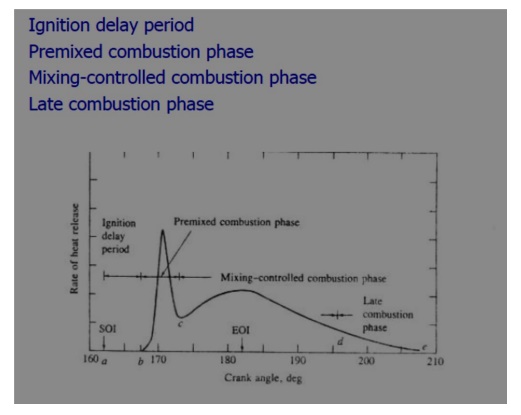Chapter: Mechanical : Advanced IC Engines : Compression Ignition Engines
Indirect injection systems

Indirect injection systems
Inlet generated air swirl, despite amplification in the piston cup, has not provided sufficiently high fuel-air mixing rates for small high-speed diesels such as those used in automobiles. Indirect-injection or divided-chamber engine systems have been used instead, where the vigorous charge motion required during fuel injection is generated during the compression stroke. Two broad classes of IDI system can be defined (1) swirl chamber systems and (2) prechamber systems, as illustrated in fig a and b, respectively. During compression, air is forced from the main chamber above the piston into the auxiliary chamber, through the nozzle or orifice (or set of orifices). Thus, toward the end of the compression, a vigorous flow in the auxiliary chamber is set up: in swirl chamber systems the connecting passage and chamber are shaped so that this flow within the auxiliary chamber rotates rapidly.
Fuel is usually injected into the auxiliary chamber at the lower injection-system pressure than is typical of DI systems through a pintle nozzle as a single spray, as shown in fig. Combustion starts in the auxiliary chamber : the pressure rise associated with combustion forces fluid back into the main chamber where the jet issuing from the nozzle entrains and mixes with the main chamber air. The glow plug shown on the right of the pre chamber is a cold starting aid. The plug is heated prior to starting the engine to ensure ignition of fuel early in the engine cracking process.

Two types of Indirect-injection diesel engine (a) swirl pre chamber (b) Turbulent pre chamber.
Combustion chambers
In order
to study about the combustion chambers we require knowing the combustion
process. The below given fig graph shows the various process of combustion in
diesel engines.

Related Topics